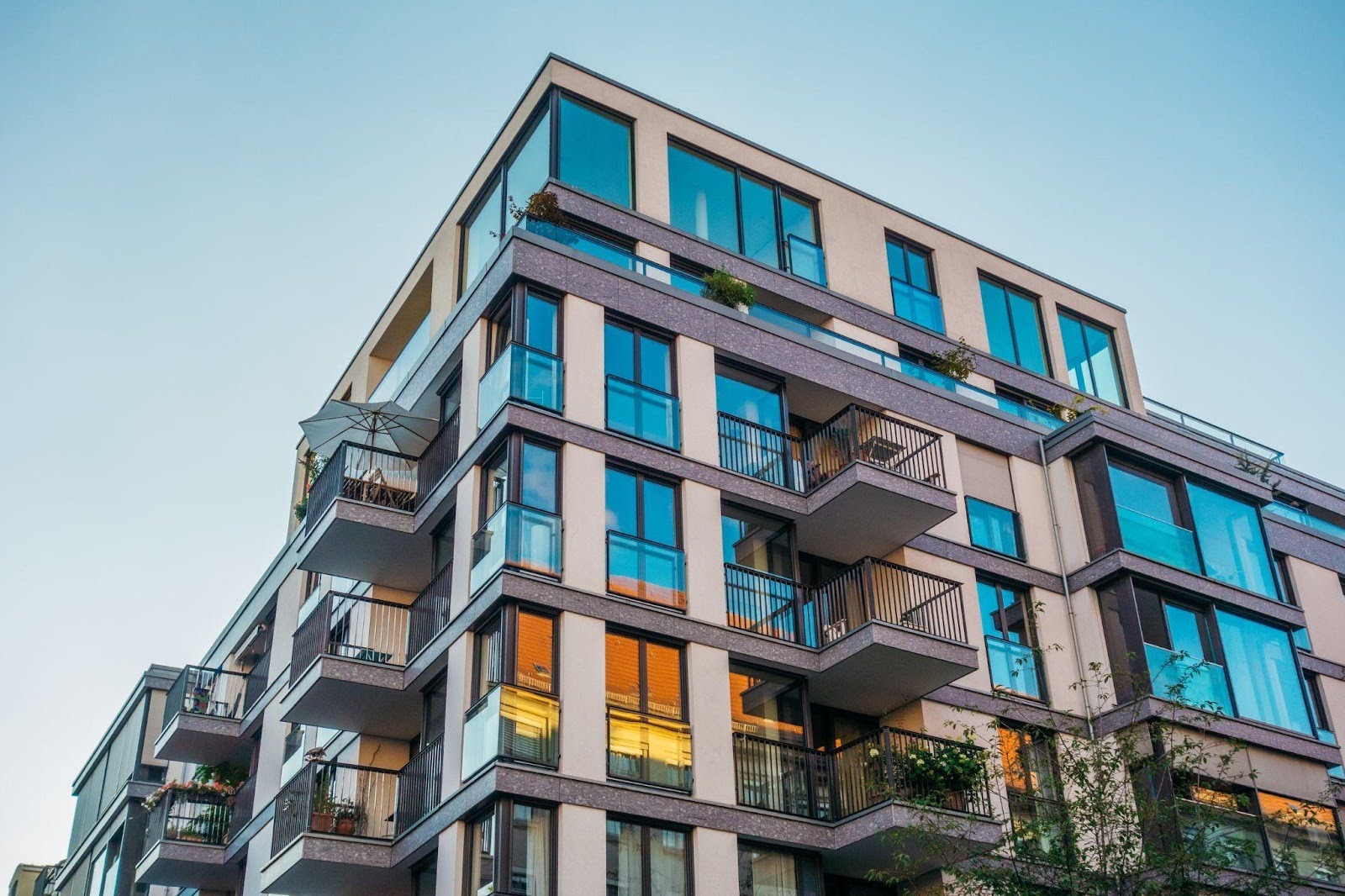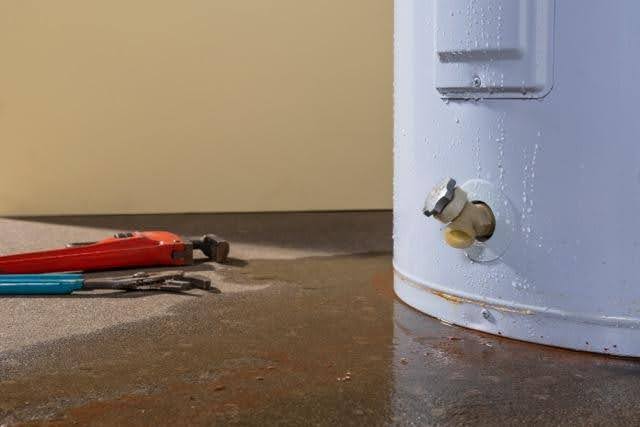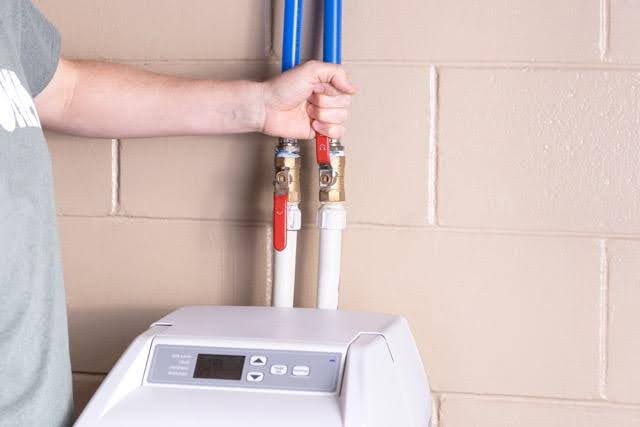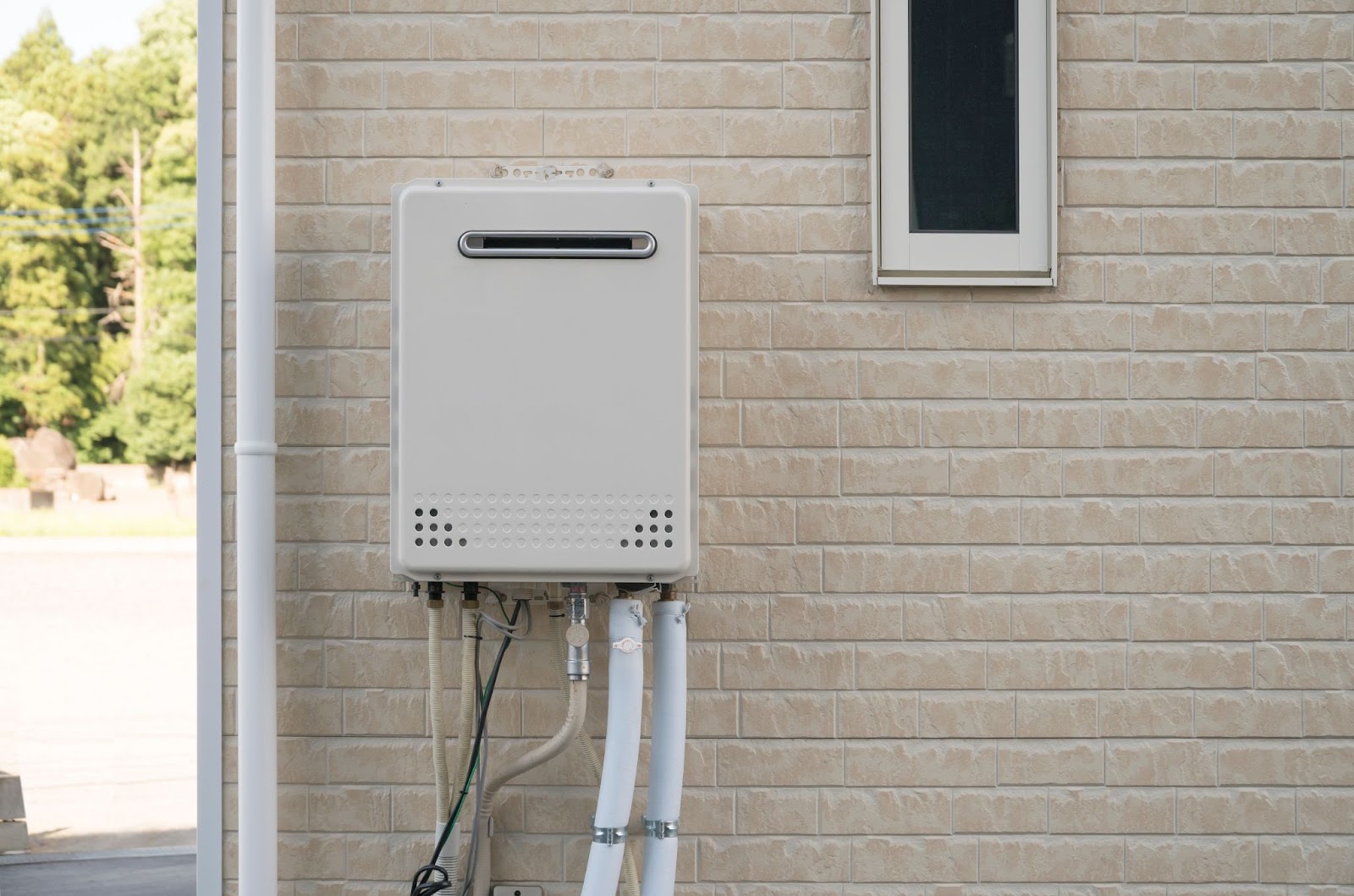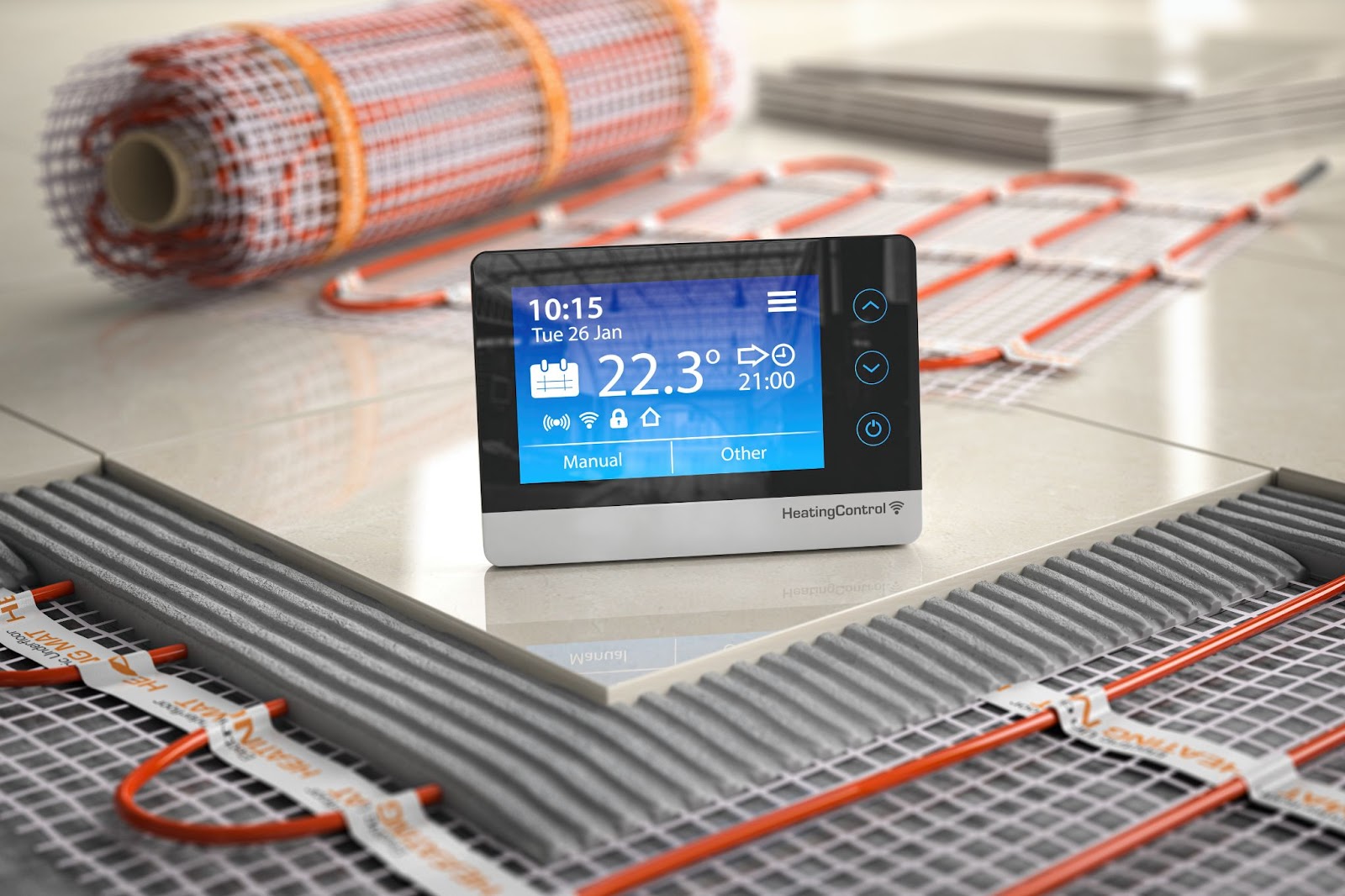Most of the time, you don’t think about your apartment’s plumbing until something goes wrong. Maybe your shower suddenly runs cold, your sink won’t drain, or you hear pipes making strange noises.
Understanding how apartment plumbing works will help you recognize problems early, communicate clearly with maintenance, and prevent small issues from turning into big repairs.
This guide will walk you through the essentials of apartment plumbing — how it works, who’s responsible for repairs, the most common issues tenants face, and the simple steps you can take to keep everything running smoothly.
How plumbing systems work in apartment complexes
In most apartment complex plumbing systems, all units share a main water line that connects to the city’s supply. From there, the water travels through a network of pipes that deliver cold and hot water to every apartment. Smaller pipes branch off inside your unit to supply your kitchen, bathroom, and laundry area.
When you turn on a faucet or flush the toilet, used water flows out through a series of drainpipes that connect back to a larger main sewer line. That wastewater leaves the building and moves to the city’s treatment system. Vent pipes help balance pressure so everything drains smoothly and smells stay out of your living space.
Since all the units share parts of the same plumbing system, one issue — like a clog or leak — sometimes affects multiple apartments. That’s why reporting problems early is important, even if they seem small. Quick maintenance helps prevent damage to your unit and the entire apartment complex plumbing system.
Knowing how apartment plumbing works also helps you distinguish between an in-unit problem (like a leaky faucet) and a building-wide issue (like low water pressure in every apartment). When you understand the basics, it’s easier to explain problems clearly and get faster help from your property’s maintenance team.
Who is responsible for plumbing maintenance?
When something goes wrong with your plumbing, it’s not always clear who’s supposed to handle it — you or the property manager. The answer depends on where the problem starts and how it affects the apartment plumbing system.
As a tenant, you’re responsible for correctly using your fixtures and appliances and reporting any plumbing issues as soon as you notice them. That includes leaks under the sink, slow drains, running toilets, or unusual sounds in the pipes. Catching problems early helps prevent water damage and keeps small issues from turning into expensive repairs.
Your landlord or property management team is responsible for maintaining and repairing the building’s plumbing infrastructure — the parts of the system you don’t have direct access to.
That includes shared water lines, main drains, and anything behind the walls or beneath the floors. If something affects more than one unit or requires major work, the property manager will usually call licensed professionals to handle it.

Common plumbing problems tenants face
Even with a well-maintained apartment complex plumbing system, problems will happen from time to time. Some issues are small and easy to fix, while others immediately need professional attention. Knowing what to look for helps you respond quickly and protect both your unit and your neighbors’ apartments.
Clogged drains and toilets
This is one of the most common problems in apartment plumbing. Hair, soap scum, grease, or even “flushable” wipes block pipes and cause slow drains or backups. Avoid pouring food or oil down the sink, and don’t flush anything other than toilet paper.
If a clog doesn’t clear with a plunger, contact maintenance instead of using harsh drain cleaners, since they can damage pipes over time.
Leaky faucets and fixtures
A dripping faucet might seem minor, but those steady drips waste water and raise your utility bill. Report leaks to your landlord or maintenance team so they can quickly fix them. If ignored, leaks can cause water stains or lead to mold growth under sinks and around fixtures.
Low water pressure
Low water pressure leads to frustrating showers and might mean there’s a buildup inside your pipes or a problem in the shared water line. If your entire apartment is affected, it’s likely a building-wide issue. Let maintenance know so they can schedule a water line fix or inspection.
Running toilets
A toilet that won’t stop running wastes a lot of water and may signal a worn-out flapper or internal seal. Most apartment maintenance teams can fix this quickly, but reporting it as soon as possible is important to avoid higher water costs.
Strange noises or smells
If you hear gurgling, banging, or tapping sounds when using water, it could mean trapped air or a loose pipe in the plumbing. Foul smells from drains might indicate a clog in the vent system. You should report both problems immediately to prevent bigger issues in the apartment plumbing system.

Preventative plumbing tips for tenants
Prevention is a big part of avoiding plumbing problems. While you don’t control the entire apartment complex plumbing system, there’s a lot you can do in your own unit to keep things running smoothly and prevent costly damage.
Watch what you flush
Toilets are designed for one thing: human waste and toilet paper. Flushing wipes, paper towels, cotton balls, or hygiene products easily clog pipes. These clogs often spread through shared lines and affect multiple apartments.
Use drain strainers
Place strainers or drain covers in your sinks and showers to catch hair, food particles, and debris. This small step prevents buildup and keeps your apartment plumbing system clear and free-flowing.
Keep grease out of your sink
Pouring grease or oil down the drain might seem convenient, but it hardens as it cools and may cause serious blockages. Instead, let it solidify and throw it in the trash.
Report leaks right away
Even a tiny drip under the sink or a small wet spot on the floor may indicate a bigger issue. Reporting it early allows maintenance to fix it before it damages your cabinets, floors, or the apartment complex plumbing system.
Know where your shut-off valves are
Every apartment has water shut-off valves under sinks and behind toilets. Knowing where they are helps you act fast if something starts leaking. Turning off the water right away can prevent flooding and costly water damage.
Run water regularly
If you’re away for more than a few days, run your faucets briefly when you return. This keeps water moving through the pipes, preventing odor or buildup from stagnant water.
When everyone in a complex follows good plumbing habits, it keeps the building’s systems running efficiently and reduces the need for emergency repairs. A little attention to maintenance on your part helps protect the entire apartment complex plumbing system — and saves you from future headaches.
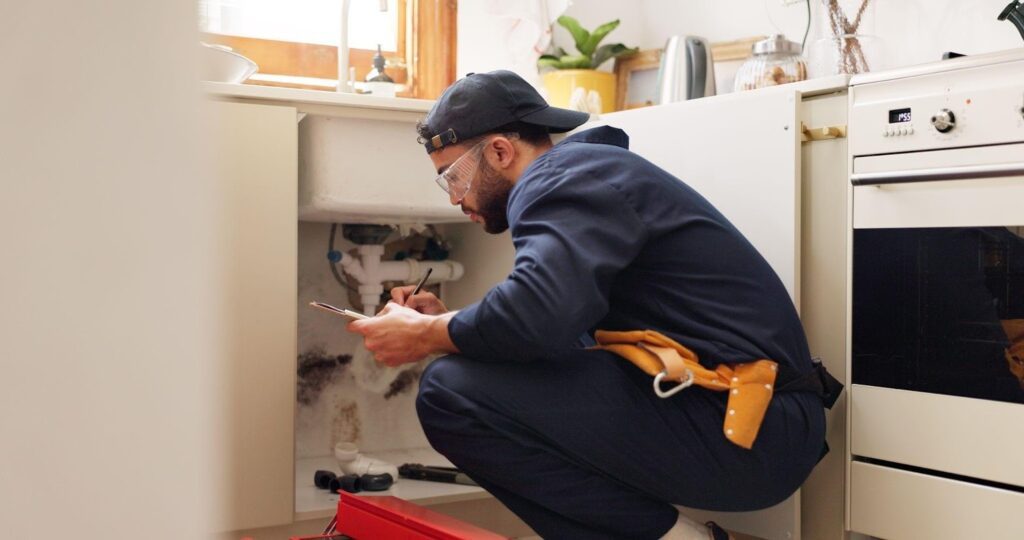
Keep your apartment plumbing running smoothly with Salisbury Plumbing
A reliable plumbing system makes all the difference in your comfort and safety as a tenant. When leaks, clogs, or water pressure issues come up, fast and professional help ensures the problem gets fixed right the first time.
Encourage your building’s maintenance team or property manager to work with Salisbury Plumbing for expert service they can trust.
Our licensed professionals handle everything from small repairs and inspections to large-scale apartment complex plumbing maintenance and water line fixes. We’re known for our quick response, dependable work, and long-lasting results.
Whether it’s preventive maintenance or an urgent repair, Salisbury Plumbing keeps apartment plumbing systems efficient, safe, and built to last.


